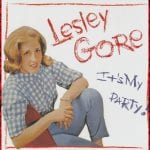Busking… and the stuff you learn on Wikipedia
My kids live on Wikipedia. It’s long been their “go to” site for information, amusement and settling disputes. It used to drive my wife crazy…as she is a teacher and was raised to use verifiable sources that carry authority with a history for accuracy. Times have changed haven’t they? Wikipedia is now one of the most visited sites on the net, and while not the “final word”, it’s largely accepted as pretty good for getting fast information as long as you’re not solely relying it in an academic situation.
I’m sure most of you know by now that Wikipedia is a community based resource where anybody and everybody can contribute. (Sort of like here.) I love that within Wikipedia, you can even find a page entitled: Wikipedia: Why Wikipedia Is Not So Great. Here’s a few reasons it may suck:
-Anyone can add subtle nonsense or accidental misinformation to articles that can take weeks or even months to be detected and removed.
-Instead of just stating the facts, many authors feel the need to attack their own pet peeves of the article’s subject. They adopt pedantic tones as they correct “common belief” or “false assumption,” when the facts alone are all that is necessary.
-Many people with causes come here to “get the word out” because publishers laugh at their stuff and site hosting costs money. So we get detailed articles about obscure activists, while the opposing establishment figures get stubs whose content is a litany of all the evil things they’ve done to the obscure activists.
-Articles tend to be whatever-centric. People point out whatever is exceptional about their home province, tiny town or bizarre hobby, without noting frankly that their home province is completely unremarkable, their tiny town is not really all that special or that their bizarre hobby is, in fact, bizarre.
Ok…so you get the point.
As a blogger, I admit to using Wikipedia quite often when I do research. If I decide to use something from it, I’ll try hard to find a secondary source. That usually suffices, unless of course that secondary source is just a mirror of Wiki or the actual source itself. Than I’m just plain screwed.
So the point to this ramble is that I just wanted to write a little something tonight about busking. Or street performance. Or more precisely, I had this idea to feature some photography, because I felt it might make a strong visual presentation. But without context or a storyline, it fell flat. So I went to Wikipedia for a quick cut and paste (with credit…I always credit Wikipedia when I use it lest I make the mistake to report something idiotic like Paul Revere’s ride was to alert the British).
Tonight I’m curious about busking. You see them all over the place. Parks and subways, campuses and coffee houses, On the beach and boardwalks, farmer markets and those places that sell fleas. I’ve discovered some amazing musicians who busk. I’ve heard some dreadful performances as well. I consider it walking the wire…the audience never knows until the end whether the artist will crash and burn or deliver the goods. In equal measure we love success almost as much as watching a swan dive from the tenth floor. That seems to be the appeal of busking. Unknown outcome.
Back to Wikipedia….here’s what they have to say on the subject of busking (which falls under the general topic of “street performance“…..there is a wealth of information here that I would encourage you to check out if so interested.):
–There have been performances in public places for gratuities in every major culture in the world, dating back to antiquity, This art form was the most common means of employment for entertainers before the advent of recording and personal electronics.
–The term “busking” was first noted in the English language round the middle 1860s in Great Britain. Up until the 20th century buskers were commonly called minstrels in America, Europe and other English-speaking lands. The word “busk” comes from the Spanish root word “buscar”, meaning “to seek” – buskers are literally seeking fame and fortune.
-In the US, medicine shows proliferated in the 19th century. They were traveling vendors selling elixirs and potions to improve the health. They would often employ entertainment acts as a way of making the clients feel better. The people would often associate this feeling of well-being with the products sold. After these performances they would “pass the hat”.
-Folk music has always been an important part of the busking scene. Cafe, restaurant, bar and pub busking is a mainstay of this art form.
-In the first decade of the 21st century, some performers have begun “Cyber Busking”. Artists post work or performances on the Internet for people to download or “stream” and if people like it they make a donation using PayPal.
I found this interesting too….the topic of notable buskers or street performers:
–The American inventor and statesman Benjamin Franklin was a street performer. He composed songs, poetry and prose about the current events and went out in public and performed them. He would then sell printed copies of them to the public.
-Bruce Springsteen has been known to busk. There is a famous set of videos, recorded on 23 July 1988 in Copenhagen, where he plays a variety of his songs with a busker on the street.
-For a stunt, the classical violinist Joshua Bell played as an incognito street busker at the L’Enfant Plaza Metro station in Washington DC on 12 January 2007. Of the 1,097 people who passed by, only one recognized him and only a couple more were drawn to his music. For his nearly 45 minute performance, Bell collected $32.17 (not counting $20 from the passerby who recognized him). He did this using a Stradivarius violin valued at around $2,000,000.
In this evening’s internet journey I’ve found dozens of websites devoted to busking in it’s musical form, and street performance in the broader definition. It made me recall watching Penn and Teller back when they performed for free at Head House Square for the tourists in the seventies, and also the topless cellist Charlotte Moorman who sadly and ironically died in 1991 of breast cancer. One man bands, the guy in Venice who walks on broken bottles, fire walkers, balloon twisters and mariachi bands.
I’ll leave you with this…some words by Woody Guthrie, a dedicated busker: “Well you know my name, but ya still call me a guitar busker, a joint hanger, train hopper, tip canary or kittie-box man” He went on to express that even though he was seen as a lower class citizen or been labelled as such, he quotes “ I know the people I see on the skid and they have done a lot less for the world than me. With their hats pulled down over their eyes and faces you cant see. Now this don’t make me right, I ain’t no better than thee. It’s ours to pick and choose our ways of life, come free”.
I lied…one more thing…this quote from an unidentified busker from Bangkok Thailand:
Next time you pause and listen, throw a little change or paper into the hat. This is one art form that is about as honest and pure as it gets.










